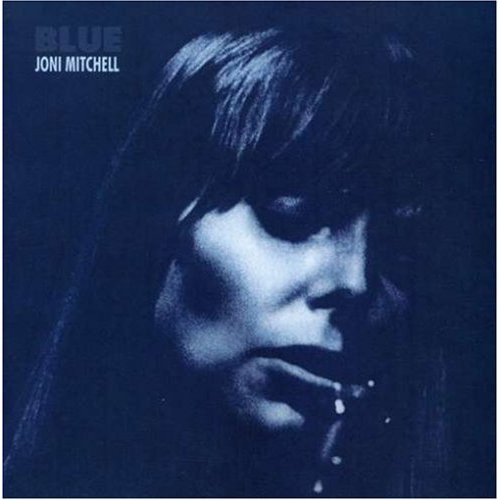Now Playing
Current DJ: Caroline
Talk Talk Such a Shame from It's My Life (EMI) Add to Collection
Requests? 773-DJ-SONGS or .(JavaScript must be enabled to view this email address)
 Today's "Rediscovering Our Record Collections" entry looks at Joni Mitchell's 1971 album Blue. Joni, often considered an icon of women in music and of introspective singer-songwriters, gained a million-selling album with Blue's confessional songs about love, loss, and travel with minimal musical accompaniment from the likes of James Taylor and Stephen Stills. Despite containing classics like "Big Yellow Taxi" and "The Circle Game," her previous work was considered a small step compared to Blue's powerful, moving lyrics and vocals.
Today's "Rediscovering Our Record Collections" entry looks at Joni Mitchell's 1971 album Blue. Joni, often considered an icon of women in music and of introspective singer-songwriters, gained a million-selling album with Blue's confessional songs about love, loss, and travel with minimal musical accompaniment from the likes of James Taylor and Stephen Stills. Despite containing classics like "Big Yellow Taxi" and "The Circle Game," her previous work was considered a small step compared to Blue's powerful, moving lyrics and vocals.
Prior to releasing her first album in 1968, Joni was an art student whose songs were getting covered by the likes of folksingers Judy Collins and Tom Rush, but she quickly emerged as a formidable singer-songwriter and guitarist in her own right. Blue is often considered her greatest masterpiece, noted for its famously confessional and deeply personal lyrics, and yet it has also been called "universal" by a number of critics. I first heard Blue around 1999, and my initial reaction was one of some disappointment.
Put simply, I didn't quite get Blue. Part of this, I realized later, was that I wasn't paying enough attention to the lyrics, though I noted the beauty of the vocals and spare instrumentation on especially the piano-based tracks, including "River" and "The Last Time I Saw Richard." But for one who had probably heard that Joni gave up her daughter for adoption a few years prior to Blue's release, I'm surprised that I had no idea that "Little Green" was about that process until someone told me later. In fact, while I noted the superior relative thematic unity to Blue, for a long time I preferred the songs on the more pop-friendly and yet heavily jazz-influenced Court and Spark.
Today that opinion has reversed. Over time, I grew to more greatly appreciate Blue's "My Old Man," "A Case of You," and especially "California" for their lyrics and vocals (if you try to sing the high notes in "California" in any range... wow, that's not easy!). The album has grown in stature in my collection over the last several years, especially since I found a vinyl copy for fifty cents (!) at a public library sale. I now can relate more to the longing for love and better times in songs like "River," though the travel imagery in songs like "California" and "Carey" sounds appealing yet difficult to relate to.
Still, Joni's highly specific lyrics about situations with which I'm unfamiliar (including with travel) sound accessible within a familiar context of folk-y, confessional singer-songwriter music. Joni's work in the years following Blue has fantastic moments, though I have not listened to much of her post-1976 music. Still, it is Blue that cemented her status as a canonical singer-songwriter, and the issues it raises about specific experiences seeming universal continue to inspire debate and scrutiny decades later. For a speculative look at some of these debates, read my blog entry on Blue and universality here.
Next entry: Friday iPod/MP3 Shuffle—Happy Birthday Lenny Kaye Edition
Previous entry: CHIRP Radio Best of 2013: Mike Bennett